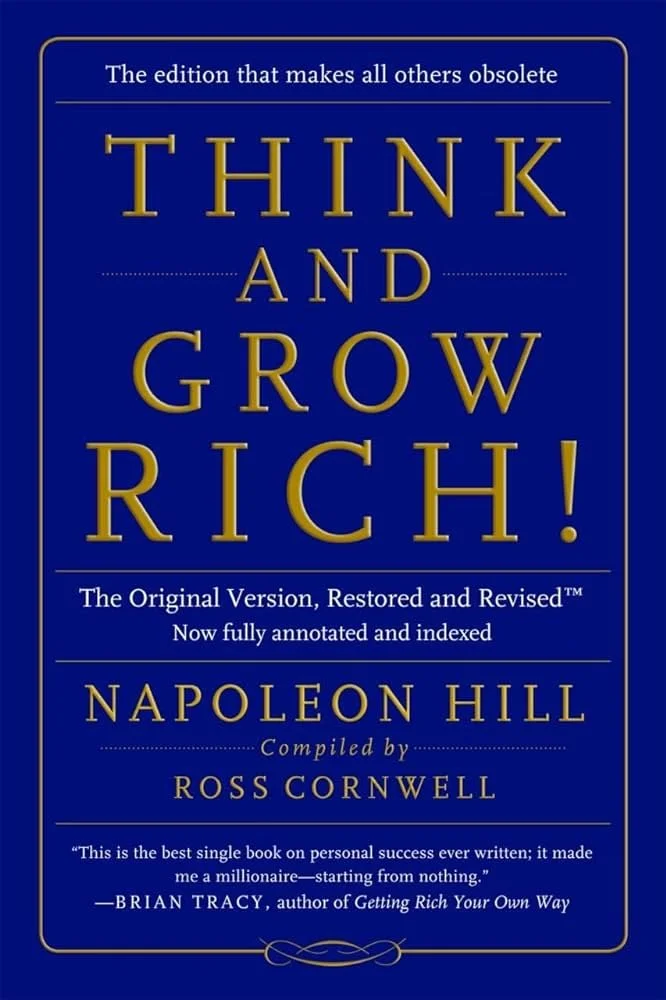11 Finance Lessons We Can Learn from The Big Short Movie
The 2015 film The Big Short, directed by Adam McKay and based on the book by Michael Lewis, is an entertaining dramatization of the 2008 financial crisis. It also serves as an eye-opening exploration of the complexities and pitfalls of the financial world. Following the stories of a few savvy investors who bet against the housing market, the film offers a wealth of insights that are highly relevant for anyone looking to understand finance better. In this post, we will highlight some major finance lessons we can learn from The Big Short.
11 Finance Lessons We Can Learn from The Big Short
The Importance of Due Diligence: One of the key takeaways from The Big Short is the importance of doing your own research. The protagonists in the film—Michael Burry, Mark Baum, and others—didn't just take the market at face value. They dug deep into the details, analyzed data, and identified the underlying risks in the housing market that most people overlooked. In finance, due diligence is crucial. When investing in stocks, real estate, or any other asset, it’s essential to thoroughly understand what you’re getting into. Blindly following trends or taking others' advice without question can lead to disastrous results.
Question the Status Quo: Another lesson the movie teaches is to question the status quo. The financial system, as portrayed in The Big Short, was built on the assumption that the housing market would always rise. This belief was so ingrained that it blinded many professionals to the risks. However, the few who questioned this assumption—those who saw the housing bubble for what it was—were able to profit from the eventual crash. In finance, it's easy to get caught up in the herd mentality, but thinking critically and questioning prevailing assumptions can set you apart and potentially save you from significant losses.
Understand the Products You Invest In: One of the reasons the financial crisis occurred was the widespread misunderstanding of complex financial products like mortgage-backed securities (MBS) and collateralized debt obligations (CDOs). The Big Short shows how even those working in finance didn’t fully understand these products. This highlights the importance of understanding the investments you're involved in. Never invest in something you don't fully understand. Complex financial instruments can be highly profitable, but they also carry significant risks, and a lack of understanding can lead to devastating losses.
Beware of Overconfidence: The film also illustrates the dangers of overconfidence in the financial industry. Many professionals believed the housing market was invincible, which led them to take on excessive risk. Overconfidence can lead to poor decision-making and complacency, blinding you to potential threats. In finance, it's very important to stay humble and aware of your limitations. Always be prepared for the possibility that things might not go as planned.
The Role of Incentives: The Big Short exposes how misaligned incentives can lead to disastrous outcomes. Many people in the financial industry were incentivized to prioritize short-term profits over long-term stability, which contributed to the creation and sale of toxic financial products. Understanding incentives is key to understanding behavior in finance. When evaluating investments, consider the incentives of all parties involved—are they aligned with your interests, or are they potentially leading to reckless behavior?
Risk Management Is Crucial: The collapse of the housing market serves as a stark reminder of the importance of risk management. The protagonists in The Big Short were able to profit because they effectively managed their risk, betting against the market in a controlled and calculated manner. In finance, it’s not enough to chase high returns; you must also manage risk. Diversifying your investments, setting stop-loss limits, and regularly reassessing your portfolio are all critical aspects of effective risk management.
Timing Is Everything: One of the challenges the characters face in the movie is the timing of their bets against the housing market. Even though they were correct in predicting the collapse, they faced significant pressure as the market continued to rise before it eventually crashed. This illustrates the importance of timing in finance. Making the right investment decision at the wrong time can still lead to losses. Patience and the ability to withstand short-term fluctuations are usually necessary to achieve long-term success.
The Market Is Not Always Rational: The Big Short clearly demonstrates that the market is not always rational. Despite all the signs of an impending collapse, the housing market continued to soar for a time. This irrationality is something every investor must contend with. Markets can be influenced by emotions, speculation, and herd behavior, leading to price movements that don’t necessarily reflect underlying fundamentals. As an investor, it’s important to recognize when the market is behaving irrationally and to remain disciplined in your investment strategy.
Ethical Considerations Matter: While The Big Short focuses on the financial aspects of the crisis, it also touches on the ethical dilemmas faced by those who bet against the housing market. The protagonists were aware that profiting from the collapse meant that many people would lose their homes and savings. In finance, it’s essential to consider the ethical implications of your investments. While profit is important, so too is the impact your financial decisions have on others. Ethical investing, also known as socially responsible investing (SRI), is a growing field that seeks to balance financial returns with social good.
The Power of Contrarian Thinking: The investors in The Big Short were contrarians—they went against the prevailing wisdom of the time. This contrarian thinking allowed them to see opportunities that others missed. In finance, being a contrarian can be a powerful strategy, especially when markets are overvalued or undervalued due to herd behavior. However, it requires confidence, conviction, and thorough research to go against the crowd successfully.
Stay Informed and Educated: Finally, The Big Short underscores the importance of staying informed and educated about the financial world. The characters who profited from the crisis were those who educated themselves about the underlying issues in the housing market. Continuous learning and staying up-to-date with financial news, trends, and developments are very important for making informed investment decisions.
To Sum It Up
The Big Short is a powerful lesson in finance, investing, and human behavior. Understanding the mistakes that led to the 2008 financial crisis can help us learn valuable lessons about due diligence, risk management, timing, and ethical investing. You could be a seasoned investor or just starting, either way, these lessons from The Big Short can help you navigate the complex world of finance and make smarter, more informed decisions. Remember, in finance, as in life, knowledge and preparation are key to success.
Let us know what lessons from this movie stand out for you in the comment section below. If you like this post, share it others and help us spread the insights. Thank you!





























